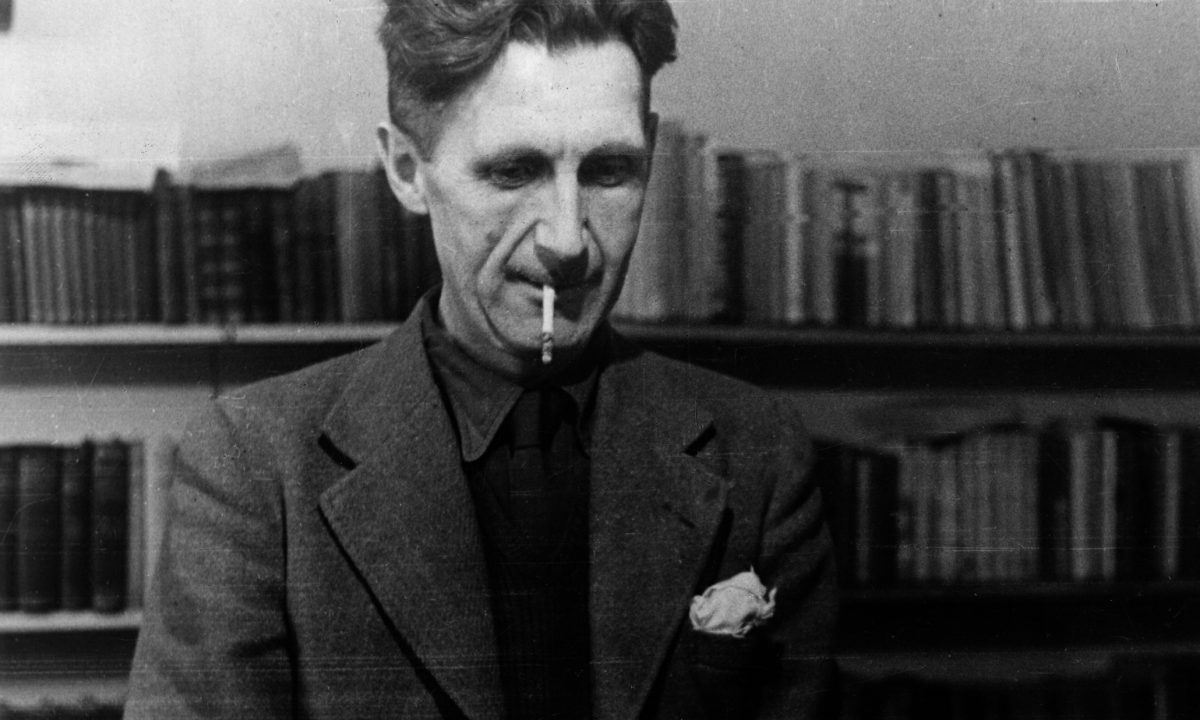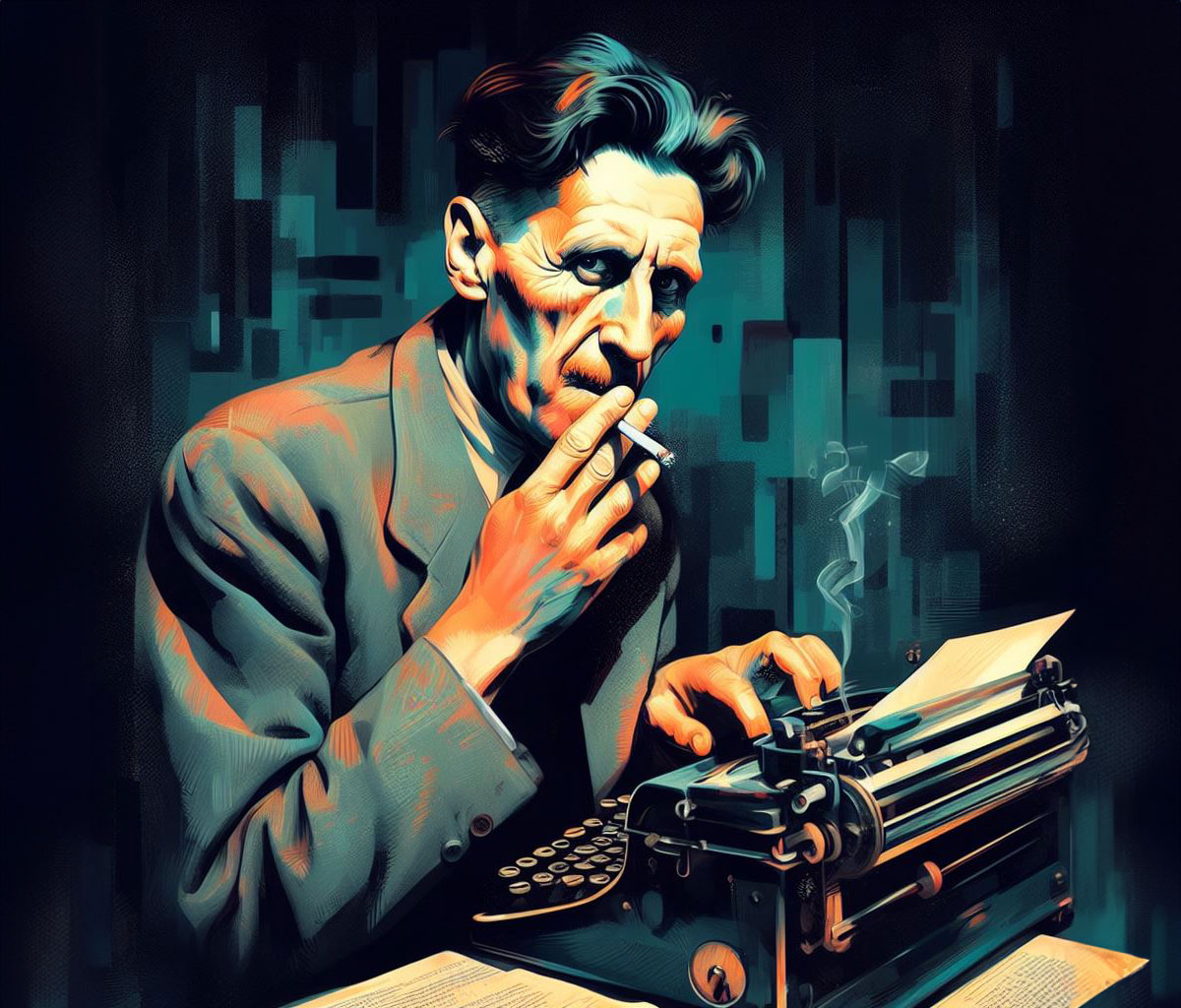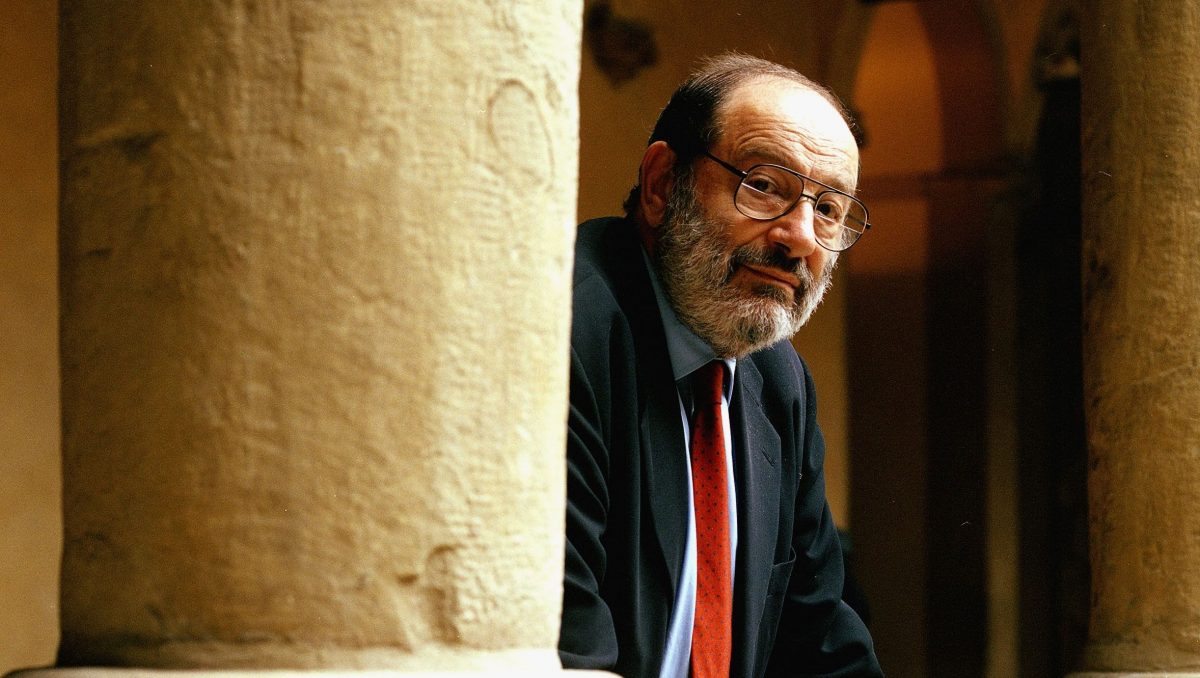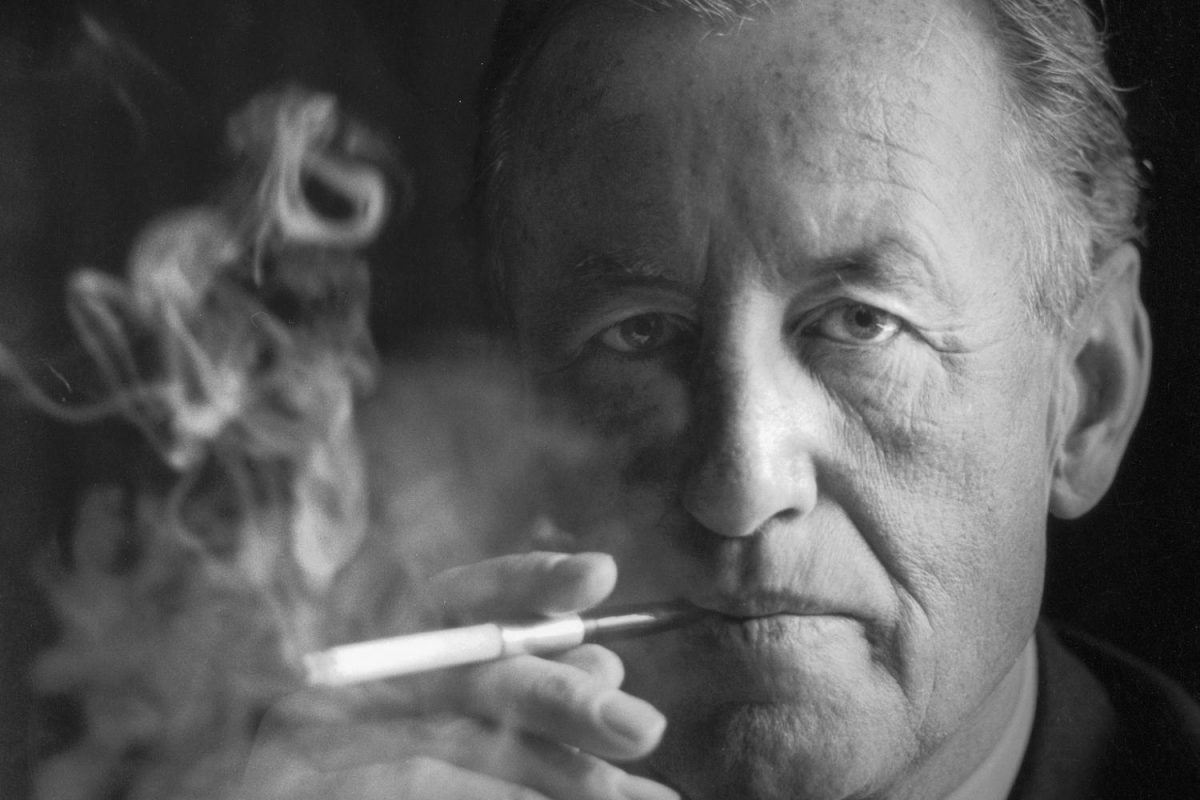by Umberto Eco
When Eric Arthur Blair finally settled on George Orwell as a pen-name, having previously rejected H. Lewis Allways, Kenneth Miles and P. S. Burton, it was more or less by chance. The decision to entitle his novel Nineteen Eighty-Four was also made more or less by chance: apparently he also considered 1980 and 1982 and it’s said that the date he finally chose was obtained by reversing the last two digits of 1948, the year in which the final version of his novel was completed. Orwell was looking for a date sometime in the fairly distant future in which to set his story (today we might term it science fiction), or his negative utopia, but a date still near enough in the future to enable him to express the fears that were actually troubling him in those years: that sooner or later, something of the sort he envisaged in his novel might actually come about.
Yet however fortuitous the choice of a date, chance too, once it has determined an event, has a way of creating its own requisites: now that the fatal date of 1984 is upon us, there is no getting away from the spectres it evokes. They have come to be part of our collective imagination.
In November 1983, the weekly magazine Time ran a cover story on Orwell, listing in alarmed tones the myriads of conferences, seminars, articles, essays, and TV documentaries that were accumulating in preparation for the fatal date of 1 January. The article announced a new critical edition of Orwell’s works, the placing of a wax model of the author in Madame Tussaud’s, a dozen or so conferences varying from science-fiction fan gatherings to events at the Smithsonian Institution and the Library of Congress, the publication of a 1984 Calendar documenting the ‘erosion of civil liberties in America’, and ending with speculation about doublethink T-shirts and a barbecue in honour of Big Brother.
Now we all know what celebrative excitement is about, and passing fads are extremely susceptible to the glamour of centenaries, golden weddings and anniversaries. But if so much folly is unleashed around a date that cannot even be defined in codifiable terms (it’s neither a birthday, a birth, an expiry date, nor an appointment), the reason cannot be a frivolous one. Orwell’s terrible tale has made its mark upon our era, has given it an obsessive image: the threat of a millennium just around the corner, and the words, ‘there will come a day …’, have relegated us all to waiting for that day, without giving us the psychological distance necessary to ask ourselves whether, in fact, 1984 has not been with us for quite some time already.
It’s not as if a great many people haven’t read this book as the description of a present time. Indeed as a satire — which is in fact Orwell’s own definition of it, albeit a satire devoid of humour — of the Soviet regime. And in fact, ever since the book was published, reactions to it have been conflicting, passionate and discordant, and on the whole rather short-sighted. Some have seen it as a timely lampoon in support of the Cold War; some, forgetting that Orwell remained a declared socialist until his death, as a conservative pamphlet; some — for the same reasons, but from the opposite political camp — considered Orwell to be a slave of imperialism; others insisted that the author was an honest anarchist wounded by his terrible experiences as a volunteer in the Spanish Civil War, during which the group with which he was serving had been killed in cold blood by Communist fighters. Such a turmoil of passions meant that for a long time the book was prevented from being read sine ira et studio in order to see what it was really talking about.
What we can say is that there is very little about the book — although this very little is quite important — that is prophetic. At least three-quarters of what Orwell narrates is not negative utopia, but history.
The book appeared in 1949 and at that time you didn’t need much of a prophetic bent (the most a convinced socialist needed was courage and intellectual honesty) to talk about Big Brother and his archenemy Goldstein, the heresiarch Jew. The Stalin-Trotsky power struggle, the great purges, the Soviet encyclopedia which claimed for Russian scientists the great scientific discoveries of the century, the attribution to the dictator of all the feats of history that had led the regime to triumph, even the continual rewriting of history (one of the most appealing and terrifying inventions of the novel) — all this was already the order of the day, even if it was dismissed from consciousness. Nor can we forget that Koestler’s Darkness at Noon had already been published in 1940.
But Orwell was not simply a disappointed revolutionary and betrayed fighter, he was also an Englishman emerging from the Second World War and the victory over Nazism; many of the atrocities carried out in Oceania recall Nazi practices and rituals: the pedagogy of hatred, the racism that divides Party members from the proles, the herding of children into a sort of Hitlerjugend where they are taught to spy and to report on their parents, the puritanism of the chosen people for whom sex may serve only as a eugenic instrument…
What Orwell does is not so much invent a possible yet incredible future as build up a collage of a past which is all too credible because it has already been possible. And, just as he implies that the regimes of the three warring superstates are basically the same, he also insinuates suspicion into the reader’s mind that the monster of our century was totalitarian dictatorship and that, as far as the fatal mechanism of totalitarianism was concerned, ideological differences actually counted for very little. This, for example, was Bertrand Russell’s reading of Nineteen Eighty-Four.
This has doubtless been one of the reasons the book has become an alarm call, a rebuke and a denunciation, and also why it has fascinated tens of millions of readers all over the world. Yet I believe that there is also another, more profound reason. In the course of the four decades that now stand between us and the publication of Nineteen Eighty-Four the impression has daily been growing that if, on the one hand, the book was talking about something that had already happened, on the other hand it was talking about what was actually happening rather than about what could happen.
Let’s take the most shiningly obvious of all indicators: television. Baird designed his first set in 1926, the first experimental broadcasts were carried out around 1935, and in Britain and America the first talk of non-experimental broadcasting was immediately after the war. So Orwell presents us with something that had not yet become a mass medium but which did already exist: he was not writing science fiction. The possibility of indoctrinating people through the new media was not a negative utopia: Goebbels’s philosophy of the radio as a propaganda instrument and a means of exerting ideological control had already received wide discussion; Adorno and Horkheimer began their The Philosophy of the Enlightenment in 1942; and another great book, Huxley’s Brave New World, had as far back as 1932 explored technological invention as an instrument of oppression.
However, what is new and prophetic in Orwell is not the idea that television allows us to see people who are far away, but that people who are far away can see us. It is the idea of closed-circuit control, later to be employed in factories, prisons, in public places, supermarkets and the fortified apartment blocks of the affluent middle classes — an idea to which we have already become accustomed — that Orwell discusses with visionary power. And it is because of ideas such as this, ideas which history was verifying daily, that readers have continued to read Nineteen Eighty-Four as a book of present-day relevance rather than as a book about the future. Orwell rendered visible through narrative something that only later Foucault would identify as Bentham’s idea of the Panopticon, a prison in which detainees could be observed without themselves being able to observe.1 Except that Orwell, ahead of his time, suggests something more: the threat that the whole world will be transformed into an enormous Panopticon.
It is at this point that we discover the significance of Orwell’s negative utopia and also why he is at pains to remind us, with what to many will have appeared simple non-commitment, that there is no difference between the regimes of Oceania, Eurasia and Eastasia. Orwell’s satire hits out not only at Nazism and Soviet Communism but at bourgeois mass culture itself.
Where, indeed, should we look to find a situation in which the ruling class is summoned to a rigid control of its morality on the basis of a criterion of efficiency, while the underclass, the proles, are accorded a wide margin of liberty for unruly behaviour, including not only the free expression of sexuality but even its programmed titillation through industrialized pornography? Who are the consumers of pornographic films? Not the poor (as opposed to the Nomenklatura) of the Soviet regime; it’s the underdogs of the capitalist countries, with the difference, certainly not insignificant, that the latter eat, drink and clothe themselves better than the proles of Oceania.
And where should we look for the development of Newspeak, the new language that reduces vocabulary in order to diminish the range of thought and sentiment? The socialist countries have developed a standard language of ideology and propaganda composed of slogans and prefabricated phrases, but if the aims of this language are the same as those of Orwell’s Newspeak, its grammatical structure is not. Newspeak would appear to share more of the characteristics of the language of television quiz shows, Anglo-Saxon tabloids, and advertisements. Many of the words listed by Orwell in the brief linguistic treatise contained in the novel’s appendix seem to have been plucked out of some TV advertisement; they’re like the words you hear housewives and children saying every day, in the version according to the purveyors of gift-wrapped happiness. Just what is the difference, I ask myself, between words like uncold, doubleplus cold, oldthinkers, bellyfeel (Newspeak) and supercleanplus, easyfix, grannybakes or fruitogel. . .
And lastly (Goldstein’s brilliant idea), Orwell not only anticipated the division of the world into zones of influence with alliances that shifted according to circumstance (whose side is China on today?) — a conclusion that could already be drawn from events at Yalta — but he foresaw a situation that has actually come about, namely that war is not something that will at some point break out, but something that breaks out every day in certain areas, without anybody trying to conceive of a definitive solution, with the result that the three big opposing alliances are free to issue warnings, blackmail each other, and make pleas for moderation. It’s not that nobody dies, indeed the death of a few people is part of the deal; thus war, from being an epidemic phenomenon, becomes an endemic one. But then after all, Big Brother is right, ‘war is peace’. For once, Oceanic propaganda isn’t lying: it’s stating such a shocking truth that nobody is able to comprehend it.
Orwell’s is much more than a straightforward satire on Stalinism; in fact, for him it is not at all necessary that Big Brother should really exist. It was still necessary for Stalin to exist, but not Andropov who, as I write, some newspapers are insinuating is already dead or confined to a wheelchair, yet it’s totally irrelevant whether he gets his health back or his funeral is celebrated in Red Square. The trouble is that, likewise, it’s irrelevant at the end of the day who the President of the United States is or who’s really in charge in China (quite independent of the different techniques elaborated by each power for the purpose of winning international consensus). Orwell guessed that, in the future-present which is his theme, the power of the great supernational systems would proliferate and that the logic of power is no longer, as in Napoleon’s time, the logic of one man. Big Brother is useful because you still need to have a love-object, but a television image will do.
All this explains the fascination of this novel, even if — and at this point I think I can say as much without being suspected of anti-Orwell malice — it is not a masterpiece of writing. His moralism is voiced out loud rather than underwritten by the action; stylistically, it isn’t much better than a good adventure novel and, from the point of view of narrative technique, Le Carré would certainly do a better job today. Everything, even the most appealing pages, reminds us of something we’ve already read: think of Kafka, for example. The pages on torture, on the subtle bond of love which binds victim to torturer, we’ve already read elsewhere, if not in Sade. The idea that the victim of an ideological trial must not only confess but repent, convince himself of his mistakes and feel sincere love for his persecutors, identify himself with them (and only then is it worthwhile killing him), is presented by Orwell as new, but this is not the case: it is normal practice for all self-respecting inquisitions.
And yet at a certain point, indignation and visionary power take the author by the hand and lead him beyond ‘literature’, so that Orwell doesn’t just write a work of narrative, but a cult book, a mythical book.
The pages on the torture of Winston Smith are shocking, indeed they have a cult greatness, and the portrayal of his persecutor seizes our imagination because we have met him somewhere before, even if he was disguised; somehow we have already taken part in this litany and we fear that all of a sudden the persecutor will take off his disguise and appear by our side, behind or facing us, and smile at us with an expression of infinite tenderness.
And at the end when Winston, stinking of gin, weeps as he gazes into the face of Big Brother, and truly loves him, we ask ourselves whether we too are not already loving (under who knows what image) our own Necessity.
At stake here is not (only) what we usually recognize as ‘literature’ and identify with good writing. What is at stake is, I repeat, visionary power.
And not all visions have to do with the future, or the hereafter.
Note
1. M. Foucault, Discipline and Punish: The Birth of the Prison (London: Penguin, 1977).
Source: Umberto Eco, Apocalypse Postponed, Indiana University Press, 1994.





